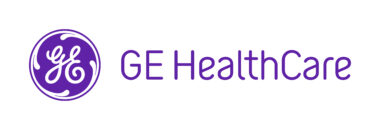

Each week in Australia, up to three young people die suddenly and unexpectedly from sudden cardiac death, often due to an undiagnosed genetic heart condition. These conditions typically go unnoticed until tragedy strikes, leaving families devastated and searching for answers.
The Centenary Institute is launching its inaugural Giving Day, to raise vital funds for research into the genetic causes of sudden cardiac death, particularly in young people, and to provide much-needed answers to grieving families.
Taking place on Wednesday 9th April, 2025, the Giving Day will be a key moment for donors, to support the Institute’s research into genetic heart disease, paving the way for targeted life-saving treatments for young people. Funds raised will also aid genetic testing and counselling services, helping families understand why their loved one died and to assess potential risks for relatives.
Associate Professor Richard Bagnall, Head of the Centenary Institute’s Centre for Cardiovascular Research emphasised the urgent need for increased funding in this critical health area.
“Sudden cardiac death can strike without warning, even in seemingly healthy young people,” said Associate Professor Bagnall. “Our research is dedicated to identifying the genetic causes of these conditions, improving diagnosis, enhancing risk assessment and ultimately saving lives.”
Associate Professor Bagnall highlighted that families seeking genetic testing and counselling at the Genetic Heart Disease Clinic could face an overwhelming 12-month wait, leaving many without information and support.
“Additional funding from the Giving Day will help reduce these wait times, ensuring that more families receive the answers and support they need, when they need it most,” he said.
Dedicated advocates for Centenary’s Centre for Cardiovascular Research are the Bellingham family, who lost their 24-year-old son, Aaiden, to sudden cardiac death. Since then, they have dedicated themselves to raising awareness and funds.
“Losing Aaiden was devastating. No family should have to experience this pain," said Adrian Bellingham. “The work being done at Centenary is essential, not only in understanding why these deaths happen but in preventing them. The Giving Day is an opportunity for all of us to contribute to research and clinical care that can save lives.”
Centenary Institute’s Giving Day takes place on Wednesday 9th April, 2025. Donations can be made before this date. Every contribution will fund vital research and family care.
To donate or learn more, visit www.donate.centenary.org.au/
[ENDS]
Key Facts:
Available for Interview:
Associate Professor Richard Bagnall, Head of the Centre for Cardiovascular Research, Centenary Institute.
Adrian and Meg Bellingham, Parents of Aaiden Bellingham who suffered from sudden cardiac death at age 24.
About us:
About the Centenary Institute
The Centenary Institute is a world-leading independent medical research institute, closely affiliated to the University of Sydney and the Royal Prince Alfred Hospital. Our research spans the critical areas of cancer, cardiovascular disease, rare diseases, inflammation, infectious diseases, healthy ageing and biomedical AI. Our strength lies in uncovering disease mechanisms and applying this knowledge to improve diagnostics and treatments for patients.
For more information about the Centenary Institute, visit centenary.org.au
Contact details:
For all media and interview enquiries, please contact
Tony Crawshaw, Media and Communications Manager, Centenary Institute on 0402 770 403 or email: [email protected]


